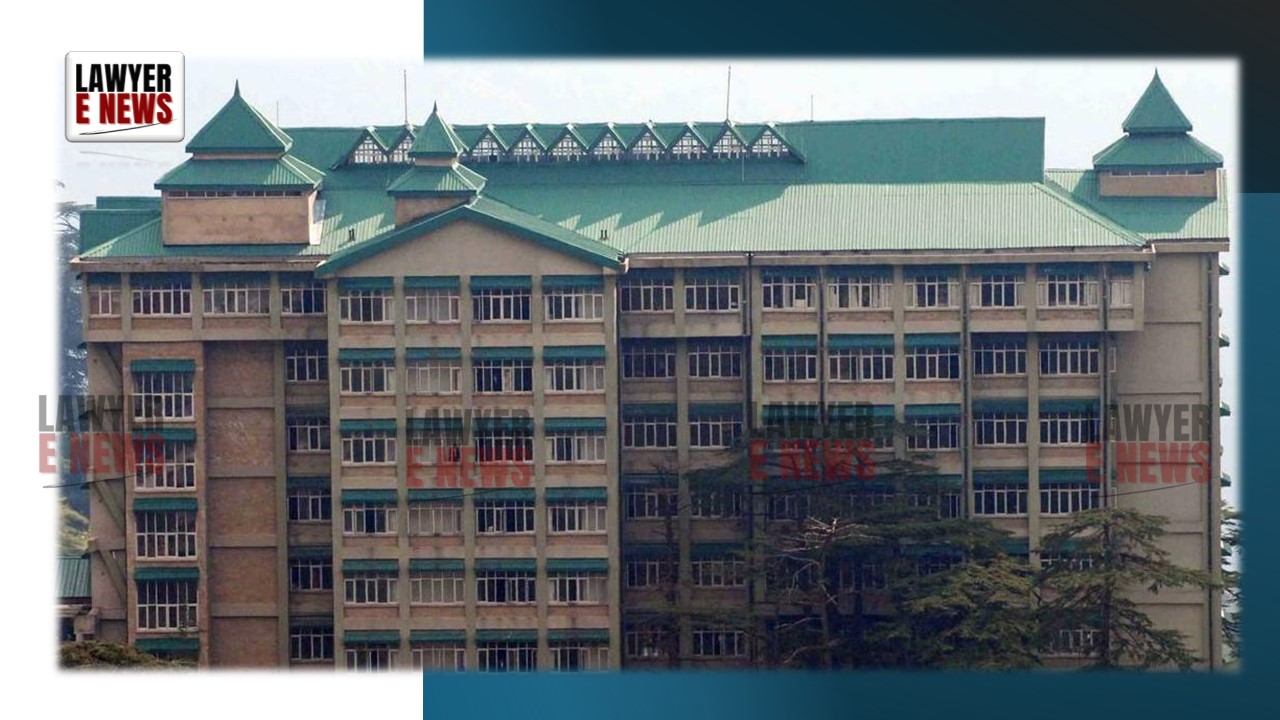-
by Admin
15 February 2026 5:35 AM



“Appointments Made Following Rules Entitle Contractual Employees to Seniority Benefits” – Justice Vivek Singh ThakurIn a significant judgment, the Himachal Pradesh High Court has upheld the decision to count the entire period of service of Junior Engineers (Electrical), initially appointed on a contract basis, for the purpose of seniority. The court’s ruling reaffirms the principle that appointments made through prescribed procedures entitle employees to seniority benefits from the date of their initial appointment. The decision, delivered by Justices Vivek Singh Thakur and Ranjan Sharma, supports the learned Single Judge’s order, emphasizing the importance of adhering to recruitment rules and providing equitable treatment to all employees.
The case, Subodh Kumar & Others vs. Rakesh Kumar & Others, involves appellants challenging a judgment from 28th August 2023. The original petition, filed by Rakesh Kumar and others, sought to quash the placement of appellants above them in the seniority list. The Single Judge had ruled in favor of the petitioners, directing that their entire period of service from their initial contract appointments as Junior Engineers (Electrical) be counted towards their seniority.
The court noted that the private respondents were appointed as Junior Engineers (Electrical) through a competitive process prescribed by the Recruitment and Promotion Rules. Although initially appointed on a contract basis, their services were later regularized without interruption. The appellants, on the other hand, were promoted to the same position on a regular basis after the respondents’ contractual appointments but before their regularization.
Justice Thakur observed, “Once an incumbent is appointed to a post according to rule, his seniority has to be counted from the date of his appointment and not according to the date of his confirmation.” This principle aligns with the Supreme Court’s ruling in Direct Recruit Class-II Engineering Officers’ Association vs. State of Maharashtra (1990) 2 SCC 715, which the court found relevant to this case.
The court distinguished between contractual appointments made following due process and ad-hoc appointments made as stop-gap arrangements. Justice Thakur emphasized that in this case, the respondents were appointed on a contract basis through a regular, competitive selection process, making their appointments substantive from the start.
Justice Vivek Singh Thakur highlighted, “The private respondents/petitioners were appointed on contract basis by following the procedure prescribed in Recruitment and Promotion Rules, therefore, judgment passed in Taj Mohammad’s case is also definitely applicable to the petitioners entitling them to count their contractual service for the purpose of seniority as well as all other service benefits.”
The High Court’s decision to dismiss the appeal reinforces the legal principle that employees appointed through a competitive process, even if initially on a contract basis, are entitled to seniority benefits from their initial date of appointment. This judgment underscores the importance of equitable treatment in employment and adherence to prescribed recruitment procedures. The ruling is expected to have significant implications for similar cases, ensuring that contractual employees receive their rightful due in terms of seniority and other service benefits.
Date of Decision: 31st July, 2024
